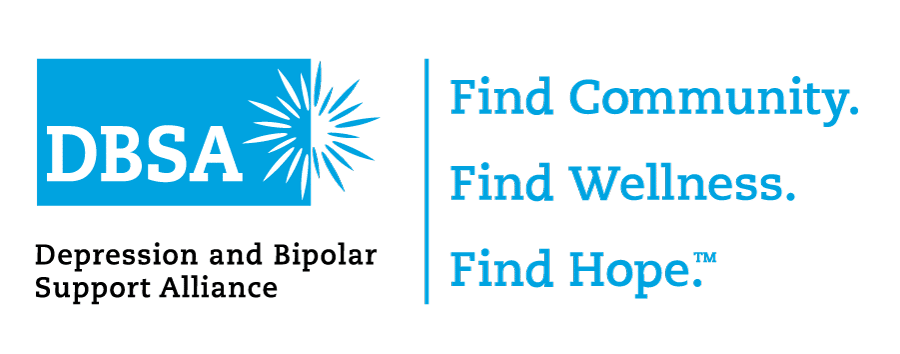You are not alone. With more than 21 million people in the United States living with depression or bipolar disorder, individuals with these conditions need not feel alone. In DBSA support groups, people with mood disorders and those who care about them can share experiences, discuss wellness skills, and offer hope to one another.
Why Attend a DBSA Support Group?
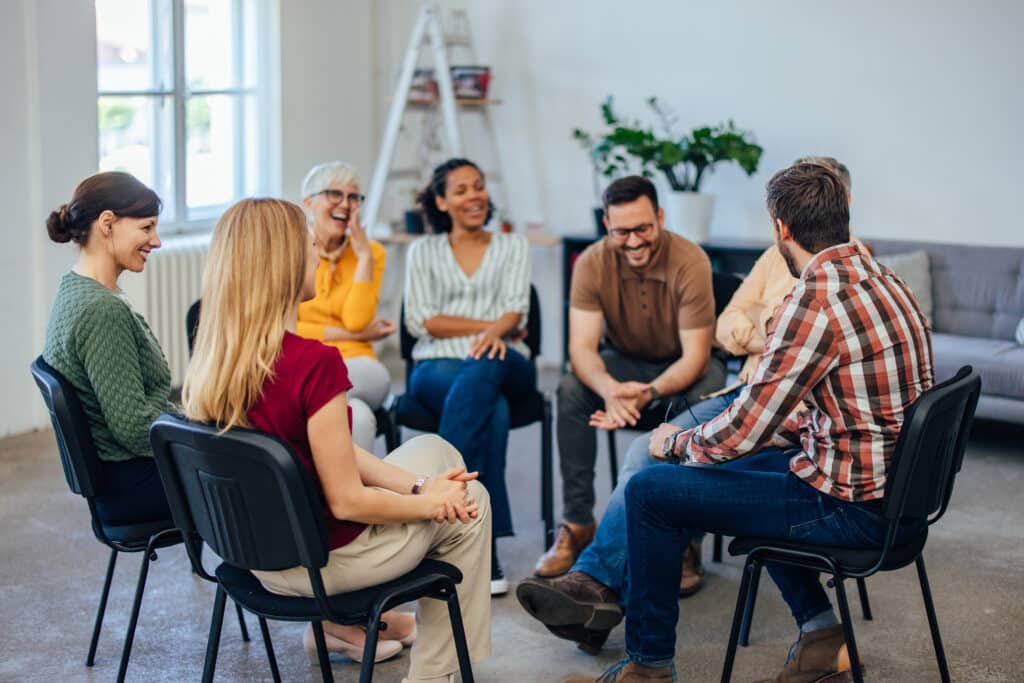
Why Attend a DBSA Support Group?
DBSA support groups provide the kind of sharing and caring that is crucial for a lifetime of wellness. DBSA support group participants say that their groups
- provide a safe and welcoming forum for mutual acceptance, understanding, and self-discovery;
- give them the opportunity to reach out to others and benefit from the experience of those who have been there;
- motivate them to follow their wellness plans;
- help them understand that mood disorders do not define who they are;
- help them rediscover strengths and humor they may have thought they had lost.
The members of my DBSA support group reached out to me and made me realize that I was not alone. If not for the support that I received from this organization, I probably wouldn’t be alive.
– DBSA support group participant
DBSA support groups are unique in that they focus only on depression and bipolar disorder and are peer-run, which means that people living with mood disorders, or their friends and family, facilitate DBSA support group meetings.
How Can DBSA Support Groups Help People Maintain Better Mental Health?
Research studies show, in general people who attended a support group for one year were less likely to be depressed and more likely to experience a sense of cohesiveness and hope.
In the specific case DBSA’s own support groups, research conducted by Pepperdine University showed, participants reported higher levels of understanding and acceptance of their mental health condition, confidence about their treatment, optimism and control over their future, and self-esteem.
Thank you so much for being there for me during these dark times. Attending the support group meetings has been a real lifeline for me, and I am so grateful that they are there and available to us.
– DBSA support group participant
What Happens at a DBSA Support Group Meeting?
Self-help – DBSA support group meetings focus on mutual aid and strategies for living the fullest life possible. Participants continually seek to provide hope, reassurance, and encouragement to one another. By sharing experiences, insights, and ideas, people get peer-to-peer support from others who have been there. DBSA groups meet regularly and are free of charge.
Acceptance and safety – Participants make the group a safe place by fostering a supportive, trustworthy, respectful, nonjudgmental atmosphere. All those attending have an opportunity to share strategies, tips, and experiences that can help others live successfully with depression or bipolar disorder. Participants have the common goal of wanting to find and maintain wellness and do not criticize the choices other group members make. Rather, they encourage each other to learn from the experiences shared and make their own informed decisions.
Confidentiality – What happens at a DBSA support group stays within the group. No one may reveal information about the people attending the group or what is said during the meeting. Exceptions to this policy are made only when safety is a concern.
Peer leadership – Each support group meeting is facilitated by someone with depression or bipolar disorder or a loved one, if the group is serving family and friends. The facilitator guides discussion, provides focus to the group, and helps ensure that group principles and rules are followed. Facilitators receive guidance and resources from DBSA staff and have the opportunity to attend leadership training sponsored by DBSA.
Other services – Most groups offer free educational materials about mood disorders and many maintain lending libraries, publish newsletters, provide information on area mental health services, or are involved in outreach or advocacy in their local communities.
What Does Not Happen at a DBSA Support Group Meeting?
Not therapy or treatment – Group participation is a valuable supplement to professional care (whether that care includes medication, talk therapy, or other treatment methods) but is not a substitute for it. Group members do not seek to diagnose one another, and DBSA and its support groups do not endorse or recommend the use of any specific treatments or medications. Each individual should work with their own health care professional(s) to determine the best possible treatment plan.
Not a lecture by an expert – Although some meetings feature guest speakers or special lectures, most DBSA groups are of the share-and-care variety, in which all are encouraged to share, if they wish to.
Not a religious meeting or a 12-step group – Group participants are not compelled to accept any particular set of beliefs or to follow any particular list of steps. It is understood that each person’s path toward wellness is unique.
Not a pity party – While participants often share the challenges of their lives and the feelings of hopelessness that accompany mood disorders, groups focus on day-by-day coping, not on self-pity.
I found my DBSA support group at a very low point in my life. Through this and other support networks, I have gotten my life back together for the most part. I struggle with the illness on a daily basis, but I am functioning and again have hopes, dreams and aspirations.
– DBSA support group participant
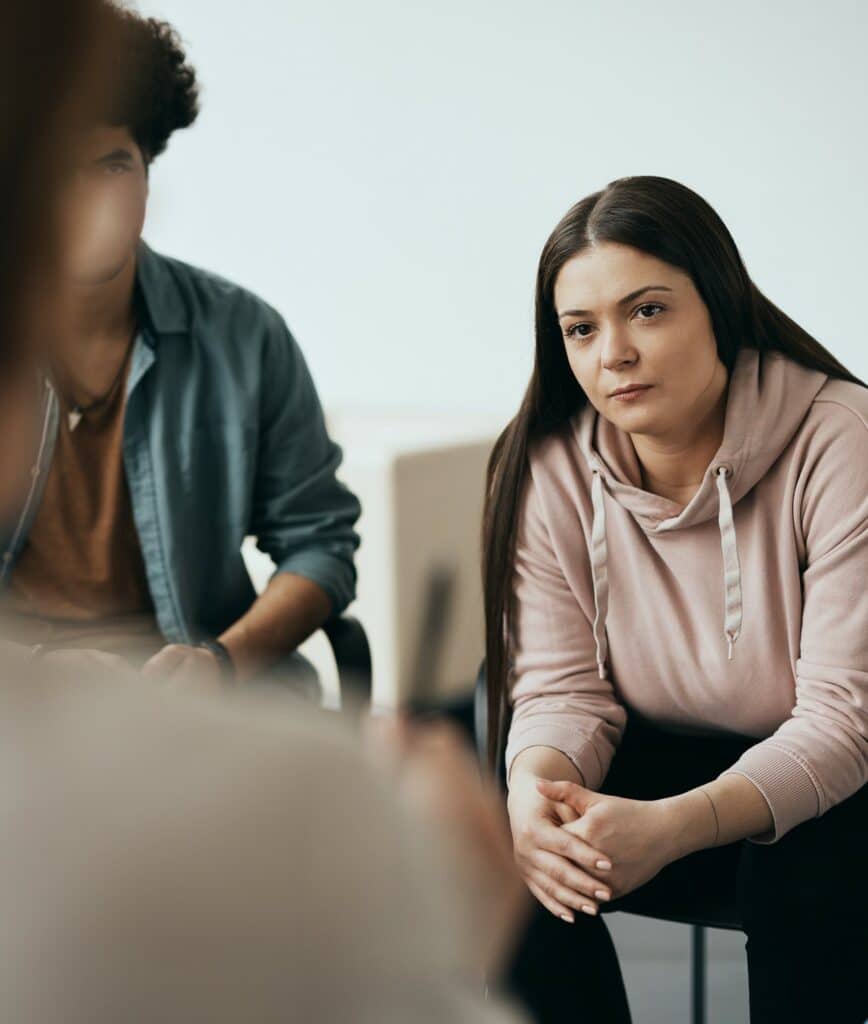
How Is a DBSA Support Group Meeting Run?
All DBSA groups subscribe to the same philosophy and follow a standard format.
The philosophy of DBSA support groups is based on DBSA’s core values of community, inspiration, wisdom, and responsibility. We believe that a peer community which recognizes the value of the lived experience can inspire hope and motivate individuals to choose their own, unique paths to wellness.
Support groups start by reading the DBSA Welcome Statement and Preamble. The group will then review the DBSA support group guidelines to ensure that everyone is familiar with them.
Next the facilitator will do a check-in with all attendees. During the check-in each person has an opportunity to introduce themselves by their first name and tell the group why they came to the meeting that day. Check-ins are expected to be brief in order to give the whole group a sense of who is there and what topics may come up. You’ll have a chance to share more during discussion. You may also choose not to share if you prefer.
Once the check-in has been completed, the facilitator will move the group into the open discussion section of the meeting. Sometimes the discussion will be topic based but more often the floor will be opened up for anyone to share more about their situation and receive support from others. You are welcome to observe or share as you feel comfortable.
Finally, the facilitator will bring the meeting to a close with a short activity or question.
Because support groups will vary greatly based on the people who attend a meeting and their needs, we encourage people to attend a group several times to determine if it is a good fit for them.
How Can I Find a DBSA Support Group?
DBSA in-person and online support groups give people living with depression and bipolar disorder a safe, welcoming place to share experiences, discuss coping skills, and offer each other hope.
In addition to our general support groups, we offer identity-focused groups.
Designed to be welcoming and supportive spaces, these groups offer participants the chance to discuss shared experiences and find community with others walking a similar path to wellness.
For Parents & Caregivers, Family & Friends
It can be difficult for family and friends of a person living with a mood disorder to watch their loved one grapple with challenging symptoms. Fortunately, there are resources available to help you as you navigate life with your loved one experiencing a mood disorder.
I think the reason I was depressed for so long was that I felt excluded from everything, even my family. Finding people who accept you for who you are—I can’t put a price tag on that.
– DBSA support group participant
What Other Services Do DBSA Chapters Offer?
All DBSA support groups are run by DBSA chapters. These chapters are independent, non-profit organizations affiliated with DBSA, each governed by its own board of directors. In addition to support groups, many DBSA chapters provide educational sessions, newsletters, lending libraries, and information about local mental health services.
Start a DBSA Support Group
DBSA supports individuals interested in starting a new support group by linking them with existing chapters in the DBSA Chapter Network. While we provide this resource for those looking to get started, you can also contact a nearby chapter directly to discuss your plans for establishing a new support group in your area.
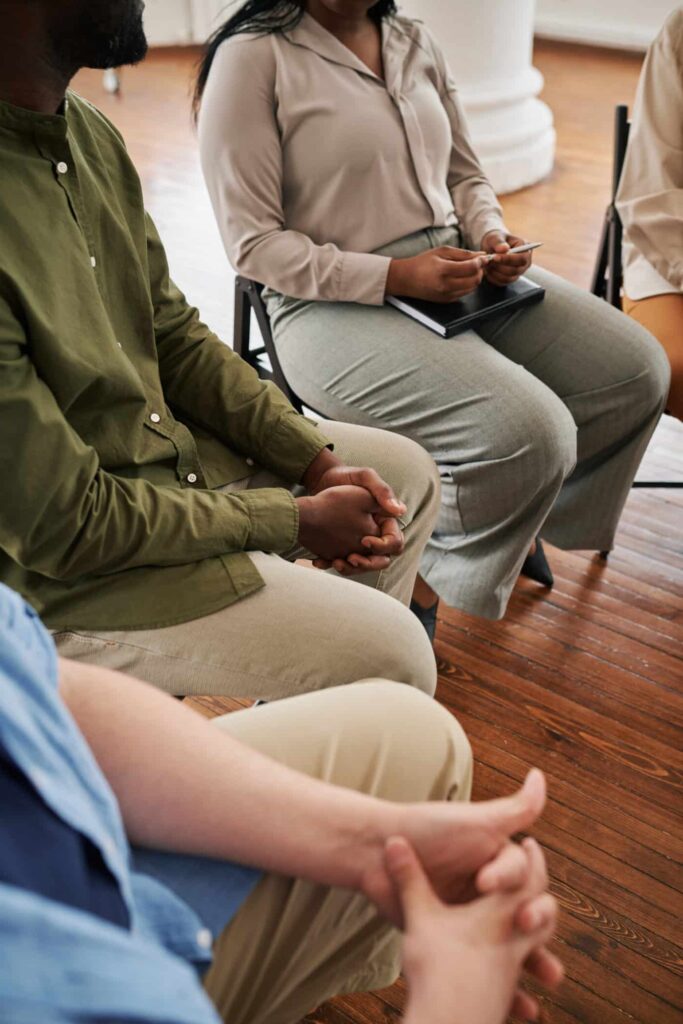
Help Spread the Word About Peer Support
If you are someone with a mood disorder, or a loved one, you can
- let others know about your DBSA support group;
- offer to explain the group to those attending for the first time, or accompany them to their first meeting;
- tell your health care provider(s) about the support group and encourage them to refer others.
If you are a health care provider, you can
- refer your patients or clients to a DBSA group;
- post information about DBSA support group meetings and contacts in your area;
- distribute DBSA educational materials;
- direct people to DBSAlliance.org for detailed information on mood disorders or to find a support group;
- assist or advise a DBSA support group in your area;
- help your patients or clients start a DBSA support group.
Help Others Find Support
If you would like to support DBSA’s mission, please consider making a donation by calling (312) 642-0049 or by visiting DBSAlliance.org/Donate.
